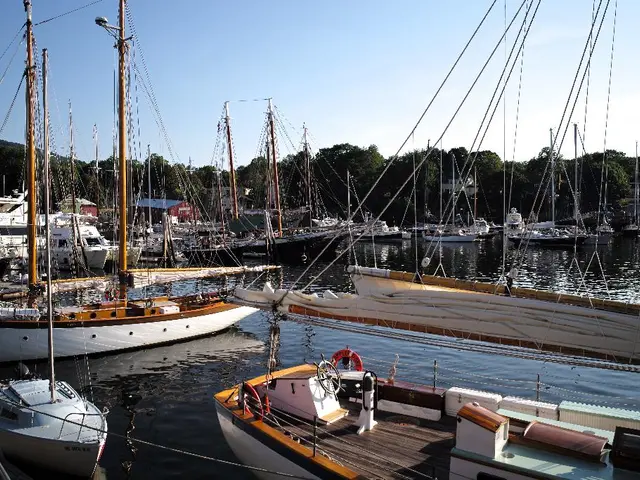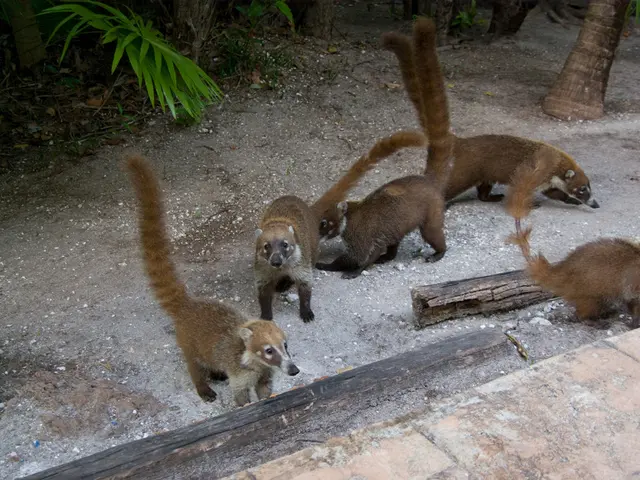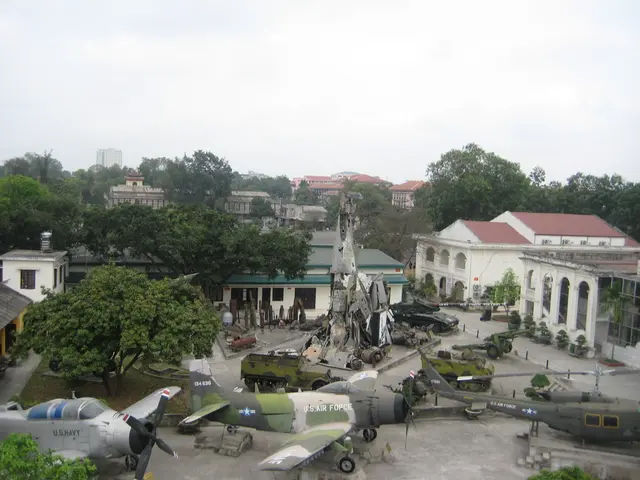Cost Analysis of Trekking to Everest Base Camp
Planning Your Everest Base Camp Trek: A Comprehensive Cost Breakdown for 2025
Are you dreaming of trekking to Everest Base Camp (EBC) but unsure about the costs involved? Here's a detailed guide to help you plan with confidence, showing where to spend for comfort, where to save without compromising your experience, and how to avoid hidden costs.
The average budget for trekking to Everest Base Camp (EBC) in 2025 ranges from about $950 to $3,000 per person for typical trekking packages, with costs extending up to $5,000 or more for luxury packages.
Key factors affecting the budget include:
- Permits: Mandatory trekking and conservation permits are typically included in package costs, but these alone have a fixed fee component that trekkers must account for.
- Flights: The domestic round-trip flight between Kathmandu and Lukla usually costs around $350-$400, with possible delays and cancellations affecting budget unpredictably.
- Accommodation: Lodging in teahouses or lodges along the trail generally costs $40 to $120 per night, varying by location and quality. Budget options have basic facilities, while luxury lodges cost more.
- Food: Meals during the trek often come with packages, but individual food expenses vary; premium packages may offer more varied or higher-quality meals.
- Guide and porter wages: Professional guides and porters are recommended for safety and ease; these fees are usually bundled with trekking packages. Tips for guides and porters are an important additional cost not always included.
- Gear rentals and personal equipment: Rentable gear such as down jackets, sleeping bags, and trekking poles may be necessary and adds to expenses.
- Travel insurance: Strongly advised due to high-altitude risks; it covers medical emergencies, evacuation, and rescue operations but incurs an extra fee outside standard packages.
- Miscellaneous expenses: Include Wi-Fi usage, charging devices, hot showers, snacks, souvenirs, and donations. These can notably increase daily costs and are often not included in package prices.
- Hidden costs: Weather-related flight delays causing extra overnight stays in Lukla or Kathmandu, unexpected equipment replacements, and extended acclimatization days add unpredictability to the overall budget.
To summarize average cost ranges for 2025:
| Expense Category | Typical Cost Range (USD) | |---------------------------|-----------------------------------------| | Trekking packages | $950 - $3,000+ | | Domestic Flights (Kathmandu-Lukla) | $350 - $400 | | Accommodation per night | $40 - $120 | | Guides and porters | Included in packages + tips extra | | Food | Included in packages; extra varies | | Gear rental | Varies; budget to mid-range pricing | | Travel insurance | $100 - $300+ depending on coverage | | Miscellaneous/hidden costs| Variable (Wi-Fi, hot showers, delays) |
A typical 14-day standard EBC trek package inclusive of permits, lodging, meals, a licensed guide and porter, and domestic flights costs around $1,500-$1,700 per person. Choosing group trekking, low seasons, and budget facilities helps reduce costs, whereas luxury packages with helicopter transport and upscale lodges increase the price to $4,000-$5,000+ range.
In contrast, the extreme costs cited for Everest expeditions climbing above base camp are vastly higher ($55,000-$75,000) due to specialized climbing logistics and longer durations but are not applicable to the trekking budget itself.
Overall, trekking to Everest Base Camp in 2025 can be tailored to diverse budgets by considering these factors carefully during planning. To help save money, consider booking flights well in advance and traveling during shoulder season, choosing group trekking, and opting for budget facilities. Proper planning for the Everest Base Camp trek can turn the experience from a logistical challenge into a stress-free adventure.
Read also:
- Prostate Cancer Progression: Prognosis, Therapies, and Resources of Care (Stage 2)
- Impacted vision post-cataract surgery: Reasons and remedies
- Guide on Achieving Harmony between Sustainability, Fairness, and Consumer Rights for All, as Discussed by Pradeep S. Mehta
- Cost Analysis of the Everest Base Camp Trek Journey







